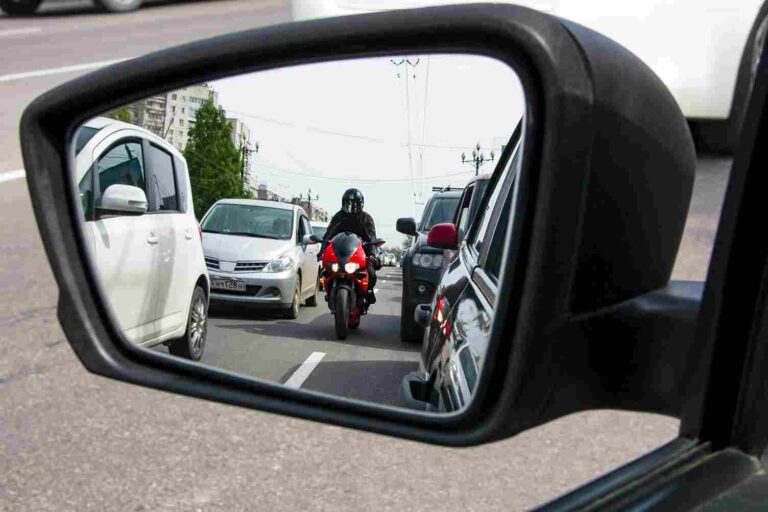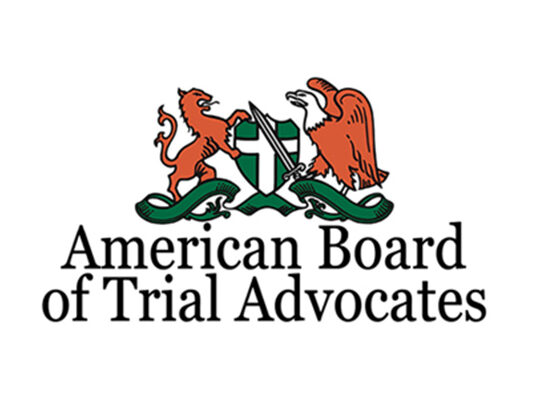The safety of our roads is a crucial concern for every community. As the number of vehicles on the streets continues to grow, it becomes increasingly important to ensure that all drivers follow traffic laws and regulations designed to protect everyone on the road.
Florida’s Move Over Laws is one such set of laws to promote safety and prevent tragic accidents. These laws mandate that drivers adjust their position on the road to create a buffer zone for emergency vehicles, sanitation trucks, utility service vehicles, and tow trucks when they are stopped with their lights flashing.
This critical maneuver ensures the safety of the personnel working at the roadside and prevents collisions and dangerous situations that can arise when drivers fail to provide adequate space.
If you are involved in an accident caused by someone who failed to follow these laws, you may be able to file an accident and receive compensation. Contact our car accident lawyers at Zimmet & Zimmet for help filing a claim.
The Role of Zimmet & Zimmet in Advocating for Safety and Representing Victims of Accidents
As a leading law firm in Florida, Zimmet & Zimmet has been at the forefront of advocating for road safety and providing legal representation for victims of accidents. The firm’s experienced attorneys represent victims of accidents resulting from violations of Florida’s Move Over Laws, seeking fair compensation for injuries, property damage, and other losses.
Background on Florida’s Move-Over Laws
Understanding the background of Florida’s Move Over Laws is crucial in grasping their significance in promoting road safety. Let’s delve into the history and purpose of these essential regulations.
Definition and Purpose of Move-Over Laws
Move Over Laws require drivers to change lanes or slow down when approaching a stationary authorized emergency vehicle, tow truck, or other service vehicles with flashing lights on the side of the road. These laws protect emergency responders, roadside workers, and other personnel from accidents caused by passing traffic.
History and Enactment of Florida’s Move-Over Laws (Statute 316.126)
Florida’s Move Over Law (Statute 316.126) was enacted in 2002 in response to a growing number of accidents involving emergency vehicles and roadside workers.
This legislation was intended to provide a safer working environment for these individuals by requiring drivers to take specific actions when encountering stopped emergency or service vehicles with flashing lights. The law has since been expanded to cover a wider range of vehicles and scenarios.
Comparison to Move-Over Laws in Other States
Florida’s Move Over Laws share similarities with regulations in other states, as all 50 states have implemented some form of Move Over Law. However, there are notable differences in terms of the types of vehicles covered and the specific actions required by drivers.
For instance, some states only require drivers to move over or slow down for emergency vehicles, such as police cars, ambulances, and fire trucks. In contrast, Florida’s laws extend to sanitation vehicles, utility service vehicles, and tow trucks. While most states mandate that drivers move over to create a buffer zone, others, like Kansas and Nebraska, require drivers to yield the right-of-way to approaching emergency vehicles.
Additionally, the penalties for violating Move Over Laws vary across states. Florida imposes fines and adds points to the driver’s record, while other states may also impose license suspensions or mandatory community service.
Detailed Explanation of Florida’s Move-Over Laws
To fully grasp the importance of Florida’s Move Over Laws, it is essential to understand the specific regulations and the actions required by drivers. Learn more about these laws here.
Vehicles Covered by the Law
- Emergency vehicles: Police cars, fire trucks, and ambulances with flashing lights.
- Sanitation vehicles: Waste collection and recycling trucks with flashing lights.
- Utility service vehicles: Electric, water, and telecommunications vehicles with flashing lights.
- Road rangers and tow trucks: Roadside assistance vehicles and tow trucks with flashing lights.
Required Actions by Drivers
- Moving over: Drivers must move over one lane when approaching a stopped vehicle with flashing lights if it is safe and possible.
- Reducing speed: If moving over is impossible, drivers must reduce their speed to 20 mph below the posted speed limit.
- Safe distance: Drivers should maintain a safe distance between their vehicle and the stopped vehicle to avoid collisions.
Exceptions and Special Circumstances
- Multi-lane highways: On highways with multiple lanes going in the same direction, drivers should move to the lane furthest from the stopped vehicle.
- Two-lane roads: On two-lane roads, drivers should slow down and move over as far as possible within their lane.
- Congested traffic and other obstacles: If traffic congestion or other obstacles prevent moving over, drivers should slow down and proceed with caution.
- Inclement weather: During adverse weather conditions, drivers should exercise additional caution and follow the same guidelines for moving over and reducing speed.
Consequences of Violating Florida’s Move-Over Laws
Violating Florida’s Move Over Laws endangers the lives of emergency responders and roadside workers and carries significant legal consequences. Let’s discuss the penalties, safety risks, and potential liability associated with non-compliance.
Legal Penalties
- Fines: Failure to comply with Move Over Laws can result in fines, which may vary depending on the severity of the violation and whether it is a repeat offense.
- Points on driving record: Violators may also receive points on their driving record, leading to license suspensions and other penalties if accumulated over time.
- Increased insurance rates: Traffic violations, including Move Over Law violations, can cause insurance companies to increase premiums, leading to higher costs for the driver.
Safety Risks
- Accidents involving emergency responders and other personnel: Not following Move Over Laws puts emergency responders, roadside workers, and other personnel at risk of being struck by passing vehicles, leading to severe injuries or fatalities.
- Increased risk for other drivers: Failing to move over or slow down can cause accidents involving other drivers, as sudden lane changes or abrupt stops can lead to collisions and traffic disruptions.
Personal Liability in Civil Lawsuits
Drivers who violate Move Over Laws and cause accidents may be held personally liable in civil lawsuits. Victims or their families can seek compensation for damages, such as medical expenses, lost wages, pain and suffering, and more.
In cases where a driver’s negligence leads to the death of an emergency responder or roadside worker, they may also be subject to wrongful death claims filed by the deceased’s family. These legal repercussions can result in substantial financial burdens and long-lasting effects on the violator’s life.
Tips for Complying with Florida’s Move-Over Laws
Complying with Florida’s Move Over Laws is essential to ensure the safety of everyone on the road. By following these practical tips, drivers can contribute to a safer driving environment and reduce the risk of accidents.
Awareness and Attentiveness
Stay alert and focused on the road at all times. Pay attention to your surroundings, particularly when approaching stopped vehicles with flashing lights. Awareness of your environment will give you ample time to react and comply with Move Over Laws.
Proper Signaling and Safe Lane Changes
Always use your turn signals to communicate your intentions to other drivers when moving over. Ensure there is enough space and time to make a safe lane change without causing disruptions to traffic flow.
Regularly Checking Mirrors and Blind Spots
Frequently check your rearview and side mirrors to stay informed about the position of other vehicles. Before changing lanes, make sure to check your blind spots to avoid potential collisions.
Practicing Defensive Driving Techniques
Defensive driving involves anticipating potential hazards and adjusting your driving accordingly. Maintain a safe following distance, adjust your speed based on traffic and weather conditions, and be prepared to react to unexpected situations. By practicing defensive driving, you will be better equipped to comply with Move Over Laws and protect the safety of emergency responders, roadside workers, and fellow drivers’ safety.
Contact Our Car Accident Lawyers for Help After an Accident
If you or a loved one has been involved in an accident due to violating Florida’s Move Over Laws, it’s crucial to seek professional legal guidance to protect your rights.
Our experienced car accident lawyers at Zimmet & Zimmet can help you navigate the complex legal process, pursue fair compensation for your injuries and losses, and hold the responsible parties accountable.
Don’t hesitate to contact our dedicated legal team for a consultation and take the first step towards getting the justice and support you deserve.











